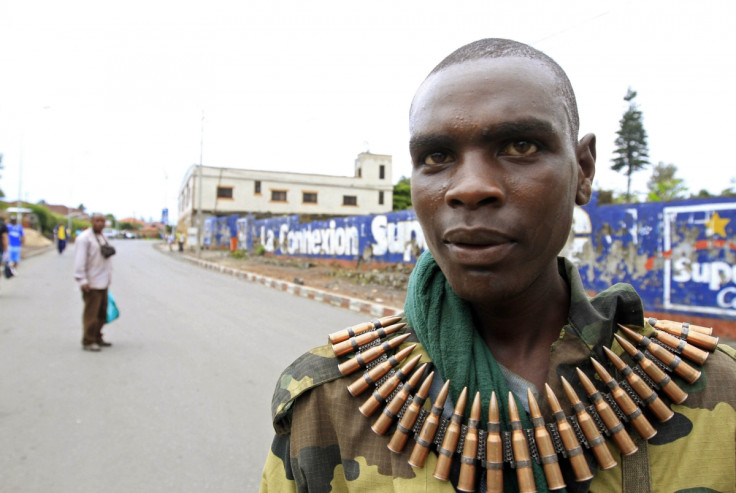Crash of two military helicopters in DRC raises fears of possible M23 rebels revival
Four dead and five injured in what military sources say was a crash while chasing fighters from the former rebel group.

The crash of two military helicopters in the strife-ridden Democratic Republic of Congo's eastern region of North Kivu has highlighted fears of a potential revival of the former largest armed group in the country.
Two helicopters of the Congolese armed forces (FARDC) crashed on 27 January near Rushuru, a town located in the North Kivu province near the borders with Rwanda and Uganda, killing four crew members. According to reports, three injured Russians and two Congolese officers were rescued and brought to hospital in Goma.
Government spokesman Lambert Mende on Monday (30 January) said it was not clear what brought down the helicopters, but military sources told UN-sponsored Radio Okapi the helicopters crashed while chasing fighters from the former Congolese rebel group M23.
Previously operating as the biggest of a dozen armed groups in the country, M23, a mostly Tutsi-led rebel group, brought havoc to eastern DRC between April 2012 and November 2013 as it fought to control of swathes of land in the African nation's mining heartland. The group was accused of being responsible for a series of murders, rapes and forced recruitment of children.
The group was defeated in eastern DRC in late 2013, after a 20-month campaign led by the Congolese army and backed by thousands of UN fighters.
However, there have been increasing reports of a possible M23 revival by former fighters held in camps in Uganda and Rwanda.
On Monday (30 January), Rwanda's defence ministry revealed that a group of about 30 unarmed people claiming to be M23 and fleeing combat with the FARDC crossed the border at the weekend.
"In the morning of 29 January 2017, a group of unarmed people claiming to be M23 combatants crossed into Rwanda through Rwanda-DRC common border, in Bugeshi Sector, Rubavu District," the Rwandan army said in a statement. "According to information received from the combatants by Rwanda Defence Force, they claim that they are fleeing from combat action by FARDC."
This comes after 101 former Congolese rebels of the M23, who had fled the disarmament camps where they have lived in Uganda since 2013, tried to return to neighbouring DRC and were stopped by Ugandan authorities earlier this month.
An army spokesman declined to comment.
© Copyright IBTimes 2025. All rights reserved.






















